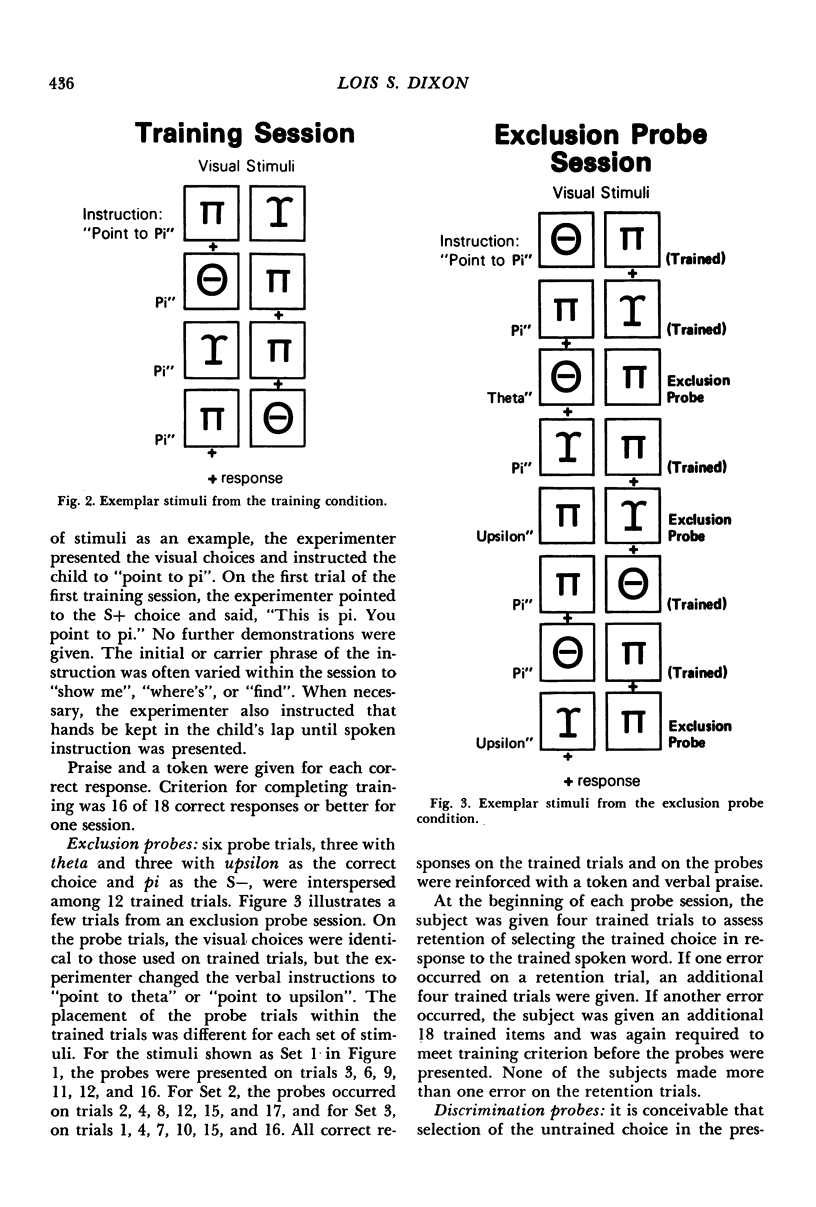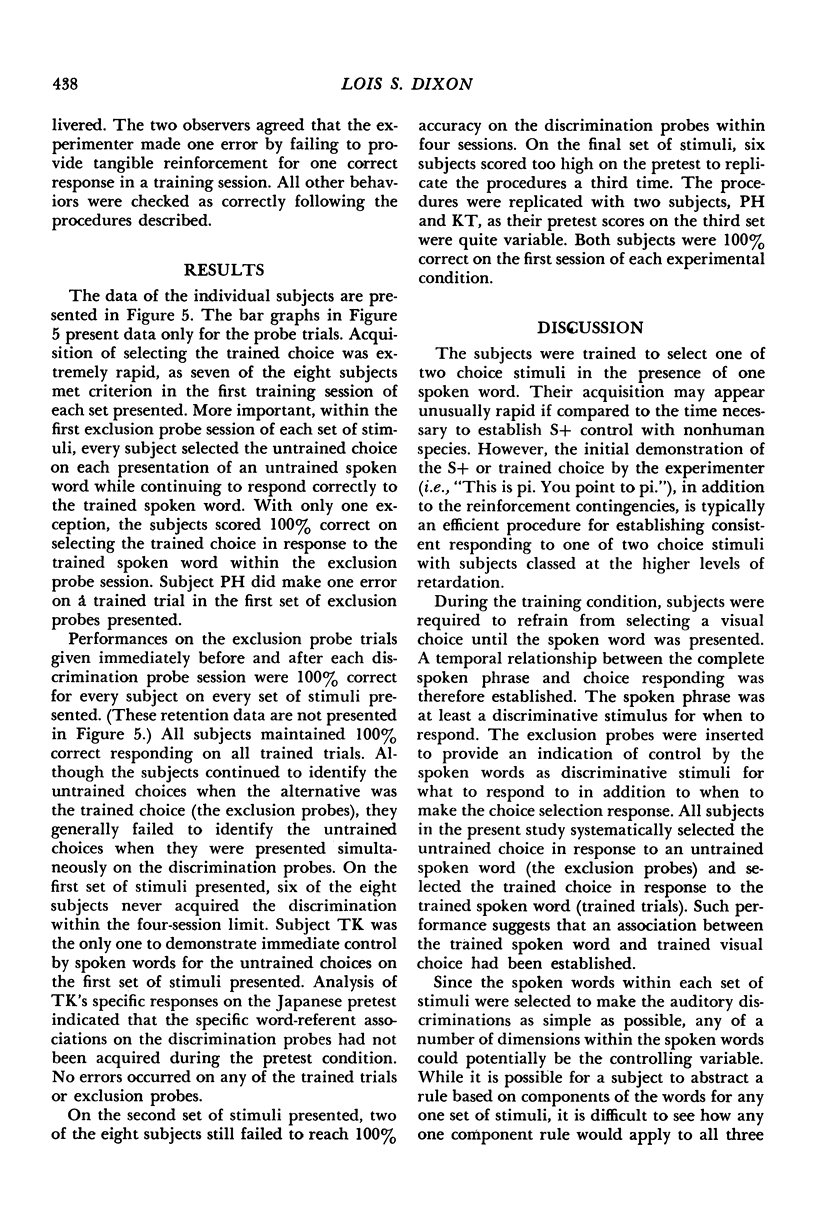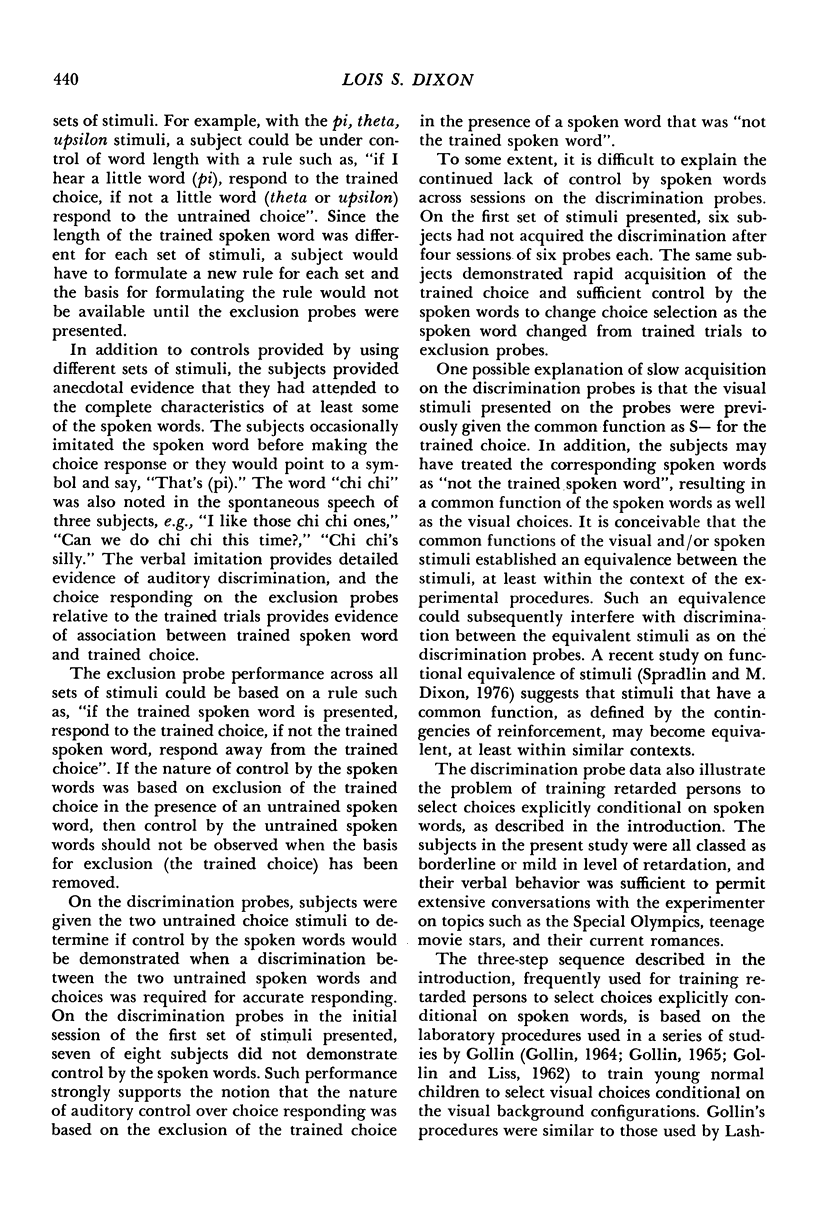Abstract
Eight retarded adolescents were trained to select one (a trained S+) of two visual stimuli in response to a spoken word (a trained word). Two different visual stimuli alternated randomly as the S-. To determine if the spoken work was merely a temporal discriminative stimulus for when to respond, or if it also specified which visual stimulus to select, the subjects were given intermittent presentations of untrained (novel) spoken words. All subjects consistently selected the trained S+ in response to the trained spoken word and selected the previous S- in response to the untrained spoken words. It was hypothesized that the subjects were responding away from the trained S+ in response to untrained spoken words, and control by untrained spoken words would not be observed when the trained S+ was not present. The two visual S- stimuli selected on trials of untrained spoken words were presented simultaneously. The untrained spoken words presented on these trials no longer controlled stimulus selections for seven subjects. The results supported the hypothesis that previous control by spoken words was due to responding away from the trained S+ in response to untrained spoken words.
Full text
PDF









Selected References
These references are in PubMed. This may not be the complete list of references from this article.
- GOLLIN E. S., LISS P. Conditional discrimination in children. J Comp Physiol Psychol. 1962 Oct;55:850–855. doi: 10.1037/h0045951. [DOI] [PubMed] [Google Scholar]
- GOLLIN E. S. REVERSAL LEARNING AND CONDITIONAL DISCRIMINATION IN CHILDREN. J Comp Physiol Psychol. 1964 Dec;58:441–445. doi: 10.1037/h0045362. [DOI] [PubMed] [Google Scholar]
- Gollin E. S. Factors affecting conditional discrimination in children. J Comp Physiol Psychol. 1965 Dec;60(3):422–427. doi: 10.1037/h0022583. [DOI] [PubMed] [Google Scholar]
- Guess D. A functional analysis of receptive language and productive speech: acquisition of the plural morpheme. J Appl Behav Anal. 1969 Spring;2(1):55–64. doi: 10.1901/jaba.1969.2-55. [DOI] [PMC free article] [PubMed] [Google Scholar]
- Guess D., Baer D. M. An analysis of individual differences in generalization between receptive and productive language in retarded children. J Appl Behav Anal. 1973 Summer;6(2):311–329. doi: 10.1901/jaba.1973.6-311. [DOI] [PMC free article] [PubMed] [Google Scholar]
- Spradlin J. E., Dixon M. H. Establishing conditional discriminations without direct training: stimulus classes and labels. Am J Ment Defic. 1976 Mar;80(5):555–561. [PubMed] [Google Scholar]
- Vincent-Smith L., Bricker D., Bricker W. Acquisition of receptive vocabulary in the toddler-age child. Child Dev. 1974 Mar;45(1):189–193. [PubMed] [Google Scholar]
- WARREN J. M. ADDITIVITY OF CUES IN CONDITIONAL DISCRIMINATION LEARNING BY RHESUS MONKEYS. J Comp Physiol Psychol. 1964 Aug;58:124–126. doi: 10.1037/h0047425. [DOI] [PubMed] [Google Scholar]
- WARREN J. M. Solution of sign-differentiated object and positional discriminations by rhesus monkeys. J Genet Psychol. 1960 Jun;96:365–369. doi: 10.1080/00221325.1960.10534304. [DOI] [PubMed] [Google Scholar]


